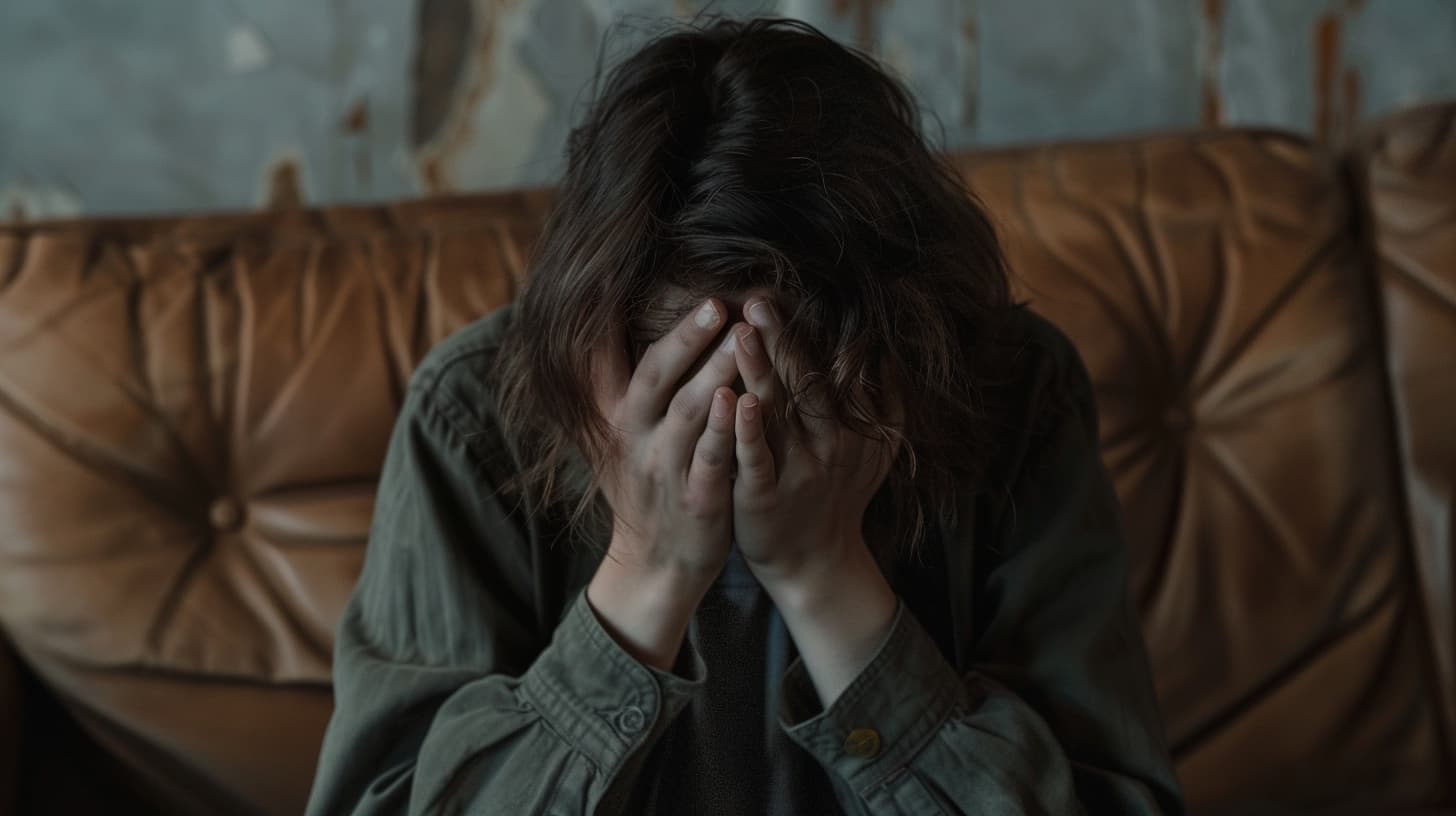What is Heroin?
Heroin (diacetylmorphine) is a very addictive drug made from morphine, a psychoactive (mind-altering) drug taken from the resin of the seed pod of the opium poppy plant. What does heroin look like? Heroin’s color and look depending on how it is made and what else it may be mixed with. It can be white or brown powder, or a black, sticky substance called “black tar heroin.”
Heroin is addictive, and there is a high risk of a heroin overdose and death from using it. Heroin also often contains additives (fillers), such as sugar, starch, or fentanyl, that can clog blood vessels leading to the lungs, liver, kidneys, or brain and cause permanent damage. In addition, sharing drug injection equipment and having impaired judgment from drug use can increase the risk of contracting infectious diseases such as HIV and hepatitis (see “Injection Drug Use, HIV, and Hepatitis”).
Heroin is a Schedule I drug under the Controlled Substances Act of 1970, with no approved medical use in the United States. A person can easily overdose on illegal drugs like heroin. A heroin overdose occurs when heroin produces severe adverse effects and life-threatening symptoms. Death from a heroin overdose happens when the drug depresses the parts of the brain that control breathing.


Get Your Life Back
Find Hope & Recovery. Get Safe Comfortable Detox, Addiction Rehab & Mental Health Dual Diagnosis High-Quality Care at the We Level Up Treatment Centers Network.
Hotline (877) 378-4154How Much Heroin to Overdose?
Heroin overdose is a dangerous and deadly consequence of heroin use. A large dose of this illicit drug depresses heart rate and breathing to such an extent that a user cannot survive without medical help. Naloxone (such as Narcan, Kloxxado) is an opioid receptor antagonist medication that can eliminate all signs of opioid intoxication to reverse a heroin overdose. It works by rapidly binding to opioid receptors and preventing heroin from activating them.
Because of the huge increase in overdose deaths from prescription opioid misuse and abuse, there has been a greater demand for opioid overdose prevention services. Naloxone that can be used by nonmedical personnel has been shown to be cost-effective and save lives. In April 2015, the U.S. Food and Drug Administration (FDA) approved a Narcan nasal spray that is sprayed directly into one nostril. In 2021, the FDA approved a higher dose naloxone nasal spray (KLOXXADO). Since Narcan and Kloxxado can be used by family members or caregivers, it greatly expands access to naloxone.
Can you overdose or die if you use heroin? Yes, because heroin can slow and even stop a person’s breathing. This is called a fatal heroin overdose. Deaths from drug overdoses increased from the early 1990s through 2017, fueled by increases in misuse of prescription opioids and, more recently, by a surge in heroin use.
According to the Center for Disease Control and Prevention (CDC) [4], In 2019, heroin overdose death rates decreased by over 6% (2018 to 2019). However, more than 14,000 people died from a drug overdose involving heroin in the United States, a rate of more than four deaths for every 100,000 Americans. The number of heroin overdose deaths was more than seven times higher in 2019 than in 1999. Nearly a third of all opioid deaths involved heroin.
Heroin Overdose Symptoms
It can be pretty tricky to interpret whether a heroin user is just high or experiencing an overdose. There are some signs and symptoms of a heroin overdose to look for that can help you distinguish between the two. If you find yourself in a position where you are unsure whether it’s an overdose or simply the ‘natural’ effects of heroin, it would be wise to handle it like a drug overdose, seeing as that could very well save their life.
Signs and symptoms of a heroin overdose include:
- Dry mouth
- Small pupils
- Drowsiness
- Disorientation
- Pale and sweaty face
- Vomiting
- Limp body
- Weak pulse
- Blue nails, skin or lips
- Weak or shallow breathing
- Coma
Get Help. Get Better. Get Your Life Back.
Searching for Accredited Drug & Alcohol Rehab Centers Near You? Or Mental Health Support?
Even if you have failed previously, relapsed, or are in a difficult crisis, we stand ready to support you. Our trusted behavioral health specialists will not give up on you. Call us when you feel ready or want someone to speak to about therapy alternatives to change your life. Even if we cannot assist you, we will lead you wherever you can get support. There is no obligation. Call our hotline today.
FREE Addiction Hotline – Call 24/7When is Heroin Use Considered an Emergency?
If a heroin user is exhibiting these signs and symptoms, especially if they are making a choking rattle while asleep, it is vital you do everything in your power to wake them.
Calling 911 is the first thing that you should do if someone overdoses on heroin. It’s vital to make sure emergency medical services respond to an overdose as quickly as possible. Even if you have access to naloxone, the person who overdosed may require further medical attention.
People may also require more than one or two doses of naloxone, and it’s impossible to know how much naloxone it’ll take to save their life until they wake up. If they consumed heroin that’s mixed with another substance, such as fentanyl, they may require more naloxone after waking up.
After calling 911, perform rescue breathing if the person isn’t breathing. After providing two or three rescue breaths, administer naloxone if you have it.

You should avoid doing anything that will put the person at risk for other health complications. When people overdose on heroin:
- Do not try to reverse the effects by using a stimulant such as cocaine or meth.
- Do not put them in a cold shower or bath.
- Do not try to force them to vomit.
Trying to revive people by any method other than rescue breathing or administering naloxone can put them at an increased risk of health problems, according to the Substance Abuse and Mental Health Services Administration.
If you regularly use heroin or other opioids or you know someone who is at high risk of an overdose, talk to your health care provider or pharmacist about naloxone. The lifesaving drug is available over the counter in several states, and some organizations provide free access to the medication.
Comfortable Facilities & Amenities
High-Quality Addiction & Mental Health Rehabilitation Treatment
Rehab Centers TourRenowned Addiction Centers. Serene Private Facilities. Inpatient rehab programs vary.
Addiction Helpline (877) 378-4154Proven recovery success experience, backed by a Team w/ History of:
15+
Years of Unified Experience
100s
5-Star Reviews Across Our Centers
10K
Recovery Success Stories Across Our Network
- Low Patient to Therapist Ratio
- Onsite Medical Detox Center
- Comprehensive Dual-Diagnosis Treatment
- Complimentary Family & Alumni Programs
- Coaching, Recovery & Personal Development Events
Heroin Overdose Death
According to the National Institute on Drug Abuse (NIDA) [5], nearly 92,000 persons in the U.S. died from a drug-involved overdose in 2020, including illicit drugs and prescription opioids. With the steady increase of heroin-induced deaths, many are wondering how will heroin kill you? The following is a detailed explanation of the science of a heroin overdose.
When heroin enters the body, it travels via the bloodstream to the brain, where it is quickly converted to morphine. Morphine is then available for binding at what are called mu-opioid receptors in the brain.
Mu-opioid receptors are located throughout the brain and in the brainstem. Those located in the brainstem inhibit the workings of the respiratory centers found there, leading to a condition known as respiratory depression.
During a heroin overdose, a relatively large amount of morphine becomes available to the brain. When this large amount of morphine binds to mu-opioid receptors in the brainstem, profound respiratory depression results and the victim of a heroin overdose eventually stops breathing. When this occurs, oxygen supply to the brain and heart plunges, and the victim dies from cardiac arrest secondary to respiratory arrest.
Heroin Overdose Medicine and Treatment
Naloxone is a medicine that rapidly reverses a heroin overdose. It is an opioid antagonist. This means that it attaches to opioid receptors and reverses and blocks the effects of other opioids. Naloxone can quickly restore normal breathing to a person if their breathing has slowed or stopped because of an opioid overdose. But, naloxone has no effect on someone who does not have heroin in their system, and it is not a treatment for heroin addiction.
Naloxone should be given to any individual who shows signs of a heroin overdose or when an overdose is suspected. Naloxone can be given as a nasal spray or it can be injected into the muscle, under the skin, or into the veins. Families with loved ones who struggle with heroin addiction should have naloxone nearby; ask their family members to carry it, and let friends know where it is. People should still call 911 immediately in the event of an overdose.
Naloxone is being used more by police officers, emergency medical technicians, and non-emergency first responders than before. In most states, people who are at risk or who know someone at risk for an opioid overdose can be trained on how to give naloxone. Families can ask their pharmacists or health care provider how to use the devices.
Naloxone works to reverse an opioid overdose in the body for only 30 to 90 minutes. But many opioids remain in the body longer than that. Because of this, it is possible for a person to still experience the effects of an overdose after a dose of naloxone wears off. Also, some opioids are stronger and might require multiple doses of naloxone. Therefore, one of the most important steps to take is to call 911 so the individual can receive immediate medical attention.
World-class, Accredited, 5-Star Reviewed, Effective Addiction & Mental Health Programs. Complete Behavioral Health Inpatient Rehab, Detox plus Co-occuring Disorders Therapy.
CALL (877) 378-4154End the Addiction Pain. End the Emotional Rollercoaster. Get Your Life Back. Start Drug, Alcohol & Dual Diagnosis Mental Health Treatment Now. Get Free No-obligation Guidance by Substance Abuse Specialists Who Understand Addiction & Mental Health Recovery & Know How to Help.
Heroin Detox and Addiction Treatment
When people addicted to opioids like heroin first quit, they undergo withdrawal symptoms (pain, diarrhea, nausea, and vomiting), which may be severe.
Medications can be helpful in this detoxification stage. This is to ease craving and other physical symptoms that can often prompt a person to relapse.
Medication-assisted treatment (MAT) can be considered by all individuals seeking treatment for heroin addiction. Drugs such as Suboxone, Zubsolv, and Vivitrol may aid heroin addicts in their recovery.
- Lofexidine. FDA approved, a non-opioid medicine designed to reduce opioid withdrawal symptoms. It is the primary medication for detoxification and heroin withdrawal symptoms.
- Methadone (Dolophine or Methadose) is a slow-acting opioid agonist. Methadone is taken orally so that it reaches the brain slowly while preventing withdrawal symptoms. Methadone is only available through approved treatment programs, where it is dispensed to patients on a daily basis.
- Buprenorphine (Subutex). FDA approved. Buprenorphine relieves drug cravings without producing the “high” or dangerous side effects of other opioids. Suboxone is a novel formulation of buprenorphine that is taken orally and contains naloxone (an opioid antagonist) to prevent attempts to get high by injecting the medication.
- Naltrexone (Vivitrol). FDA approved. It is a medication primarily used to manage alcohol or heroin addiction by reducing cravings and feelings of euphoria associated with substance abuse. Heroin addicted person should not receive naltrexone before detoxification.
- Naloxone should be given to any person who shows signs of an opioid overdose or when an overdose is suspected. It can be given as a nasal spray or it can be injected into the muscle, under the skin, or into the veins.
Behavioral Therapies
Behavioral therapies or Psychotherapies – therapies like cognitive behavioral therapy (CBT) help modify the patient’s expectations and behaviors related to drug use and increase skills in coping with various life stressors.
Detoxification
Many heroin-dependent individuals require detox as their first stop due to withdrawal symptoms they experience when they cease using heroin. Detox consists of a gradual tapering off of the patient’s usual dosage of heroin, while also shifting dependence from heroin to a drug with similar, but less severe and addictive effects.
The patient can then be weaned off the new drug, often avoiding the harmful results of prolonged heroin withdrawal. After detox is complete, the patient enters inpatient rehab for an extended period of time based on how severe the addiction was.
If you or your loved one is suffering from heroin addiction, indeed help is just a phone call away. Professional heroin addiction treatment is necessary to avoid heroin overdose and for fast and effective recovery. Contact us today at We Level Up NJ Treatment Facility. We provide utmost care with doctors and medical staff available 24/7 for life-changing and lasting recovery. We provide an enhanced opportunity to return to a fulfilling and productive life.

Experience Transformative Recovery at the We Level Up Treatment Center.
See our authentic success stories. Get inspired. Get the help you deserve.



Start a New Life
Begin with a free call to an addiction & behavioral health treatment advisor. Learn more about our dual-diagnosis programs. The We Level Up treatment center network delivers various recovery programs at each treatment facility. Call to learn more.
- Personalized Care
- Caring Accountable Staff
- Comfortable Amenities
- Licensed & Accredited
- Renowned w/ 5-Star Reviews


